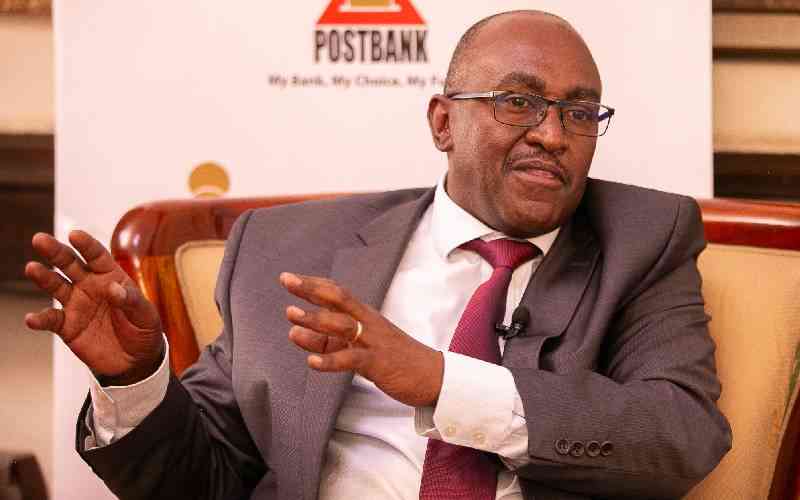
Studies show that more than half of small enterprises do not live past their second year of operation, a factor that continues to hinder access to affordable credit for business growth.
When compared to big corporations, SMEs face the brunt of limited access to credit, as financiers cushion themselves against financing risks associated with small enterprises.
The Micro, Small and medium-sized enterprises employ close to 15 million Kenyans, making a chunk of the entire labour market in Kenya.
PostBank Managing Director Raphael Lekolool observed that there is a notable shift towards financing the small enterprise sector, being a major player in driving Kenya’s economy.
“SMEs control almost half of Kenya’s GDP, so it is an area we cannot ignore,” Lekolool said.
Even as the appetite for credit in the sector grows, Lekolool while speaking during ‘My chat with a bank CEO’ forum said that the short shelf life of MSMEs makes them less attractive to financiers.
“Most SMEs are not well organised, raising suspicions among banks due to a lack of records,” he said.
Lack of collateral for small businesses has also been identified as hindering access to affordable financing from banks.
“They need to have enough collateral to show that they believe in their businesses when seeking financing,” he advised, noting that banks also look at the viability of a business for financing.
Small businesses have to meet certain metrics like viability for the banks to finance them, he said.
The SMEs also need to have a track record of operation to ease the process of accessing finance.
“Banks are keen on character on credit compliance. If your character does not demonstrate goodwill in regard to repayment of credit, banks will shun from financing,” Lekolool said, adding that proper packaging is essential.
According to the banker, banks want to see the ability to repay.
“A record of your balance sheets, cash flows, and profit and loss records is essential for businesses seeking funding,” he said, adding that a clear record positively impacts interests.
Small businesses have been urged to borrow from the banks when they start to feel pressure, so that banks can structure a suitable product for them.
Stay informed. Subscribe to our newsletter

Further, small traders have been challenged to know the kind of loan they need.
“When you are starting, you may need mobilisation money, but businesses need to understand when to take loans,” he said, indicating that formalisation of business is critical, as it separates the individual and the business.
Formalisation of a business shows structure, which may attract financiers, he said.
“Businesses that are unable to separate the business from the individual are sometimes denied access to funding. Formalising a business separates risks,” he said, adding that the area of operation also affects credit score for businesses, as different sectors bear different risks.
“Some MSME areas fail faster than the rest, banks shun from such ventures,” he said, noting that these businesses fail due to poor management, lack of capital and pulling money from the business to buy non-related assets.
Lack of liquidity, good records and management and the understanding of the business, have been singled out as key issues causing the collapse of small businesses.
Businesses have been challenged to assess their sustainability, which will in turn inform when to exit the stage and seek more viable ventures.
The My Chat with a Bank CEO series provides an interactive platform where bank leaders engage directly with customers on key banking topics.
The October–November 2025 edition features six CEOs discussing how the industry is leveraging the KESONIA framework to empower businesses and households across Kenya.
Visit My Chat with a Bank CEO for registration.






